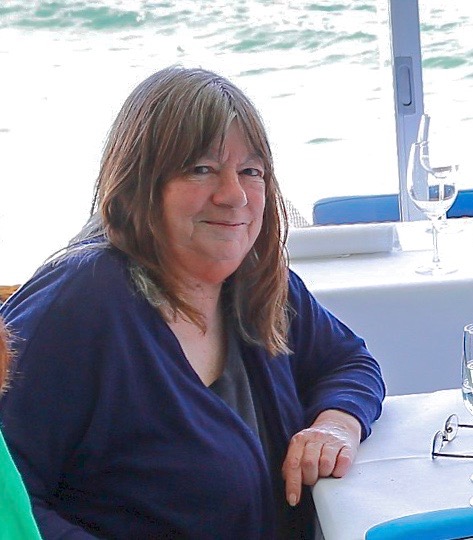Jenny Woods.
Jenny Woods, who died on July 31, aged 75, was one of the behind-the-scenes people who played a role in the establishment of the Australian film industry in the 1970s and 80s, unknown outside the industry but valued and admired within it.
As general manager of the New South Wales Film Corporation from 1977 to 1987, Jenny supported the development and production of iconic films like My Brilliant Career and Newsfront. An extremely capable manager with strong creative skills, she was a key player in identifying scripts and talent and in assisting them into production.
She was a risk taker too, supporting less obvious projects such as The Night The Prowler from a Patrick White story directed by Jim Sharman, and Ray Lawrence’s award winning Bliss, an adaptation of the Peter Carey novel.
The NSWFC was set up under the Wran government to assist in the development of the industry. Its chairman was Paul Riomfalvy, an associate of Neville Wran’s with a film background in his native Hungary and a theatre background in Australia. He was responsible for policy and for the Corporation’s relationship with government, and Jenny ran the day to day activities.
She was hired initially as senior project officer at the interim Commission and promoted to GM when the Corporation commenced full operation at the end of 1977. She was later made a director of the Corporation.
Jenny was born in Melbourne, the elder child of Hugh Francis Woods and Maybelle Nancy, nee Allen. Her father, Frank, was an architect and her mother, Nan, a teacher. Jenny attended Firbank Grammar School in Brighton where her mother taught in the senior school. After leaving school Jenny became a producer of television commercials at J. Walter Thompson in Melbourne.
She was keen to get into film and when the opportunity arose she moved into the new drama industry, working her way up from production secretary to production manager/associate producer on films like Mad Dog Morgan (starring Dennis Hopper with Jack Thompson and the legendary Frank Thring) and Fred Schepisi’s groundbreaking The Devil’s Playground.
As an executive at the NSWFC she was a leading figure in the Australian film industry. She was passionate about Australian films and widely respected as a straight shooter. She represented the Corporation on marketing and promotion trips to Hollywood, the American Film Market and the Cannes Film Festival and to other major festivals. She was always working to find support from buyers and distributors for Australian films.
By 1986 the dynamics of the Corporation had begun to change and her working relationship with Riomfalvy which had been close, faltered and she left the Corporation.
In 1993 she joined the completion bond company Film Finances as its documentary representative. Her experience and her capable managing qualities were an asset in the role and she became a friend and a legend, in that order, to Film Finances’ documentary clients.
In her time at Film Finances she was responsible for delivering more than 400 documentaries. Her support of her clients and her direct and fair way of dealing with them and providing advice when trouble arose, as it can do so spectacularly in documentaries, earned her the undying respect of a generation of documentary film makers.
In 1997 she took time off from Film Finances to produce a movie, The Sugar Factory, directed by Robert Carter, with Tony Buckley as co-producer. She brought the film in on time and budget with her usual capability, and then returned to Film Finances and her documentary clients.
Any thoughts about Jenny would not be complete without remembering her legendary smoking. She would never entertain any conversation which involved the possibility of her giving it up, and she carried on quite a bit of her work from the front doorstep at Film Finances where her ashtray was located. Any working lunches or dinners had to be organised either somewhere where Jenny could smoke, or somewhere with a quick exit for several inter course cigarettes.
She had a phobia about flying, although it is assumed that she managed to deal with it while travelling internationally for the Film Corporation, as it was a long way to Cannes by sea.
However in later years she used every possible excuse not to have to fly anywhere for work and every year she would set off for Adelaide and the Documentary Conference in a series of trains, sleepers booked where required. Shey retired from Film Finances in 2018 after 25 years with the company.
So many film people have cause to remember Jenny for her loyalty, for her generosity of spirit, for her fairness and decency and for her contribution to the industry. And for her often wicked sense of humour and her laugh, which came up from her boots. She will be sadly missed.
She is survived by Jim Sepping, her partner of 30 years, and her brother Geoff.
Sue Milliken is a film producer and author who represented Film Finances for 30 years.



